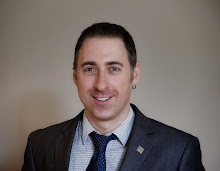While the Canadian Forces lifted the ban on gays and lesbians serving openly and allowing their partners to live on-base since 1992,
Friday, July 25, 2008
Canadian Forces and Pride - The Article That Wasn't
In the course of writing the article on the state of gays and lesbians in today's Canadian Forces, several lines of enquiry went out, being as I wasn't sure just what information would turn up where. Given that the decision by Hamilton Pride to ban the CF from their Pride parade was the flashpoint for everything that followed, I tried to follow up on that, to little avail. In the end, the interview with Dr. Irwin became the dominant focus, though lines of enquiry in that interview also didn't make it into the final piece (some of which I'll post here later), but I had a wealth of other material that hasn't yet seen print. I've taken all the information I had, and put up this rough piece in case anyone is interested in what might have been.
Subscribe to:
Post Comments (Atom)




No comments:
Post a Comment